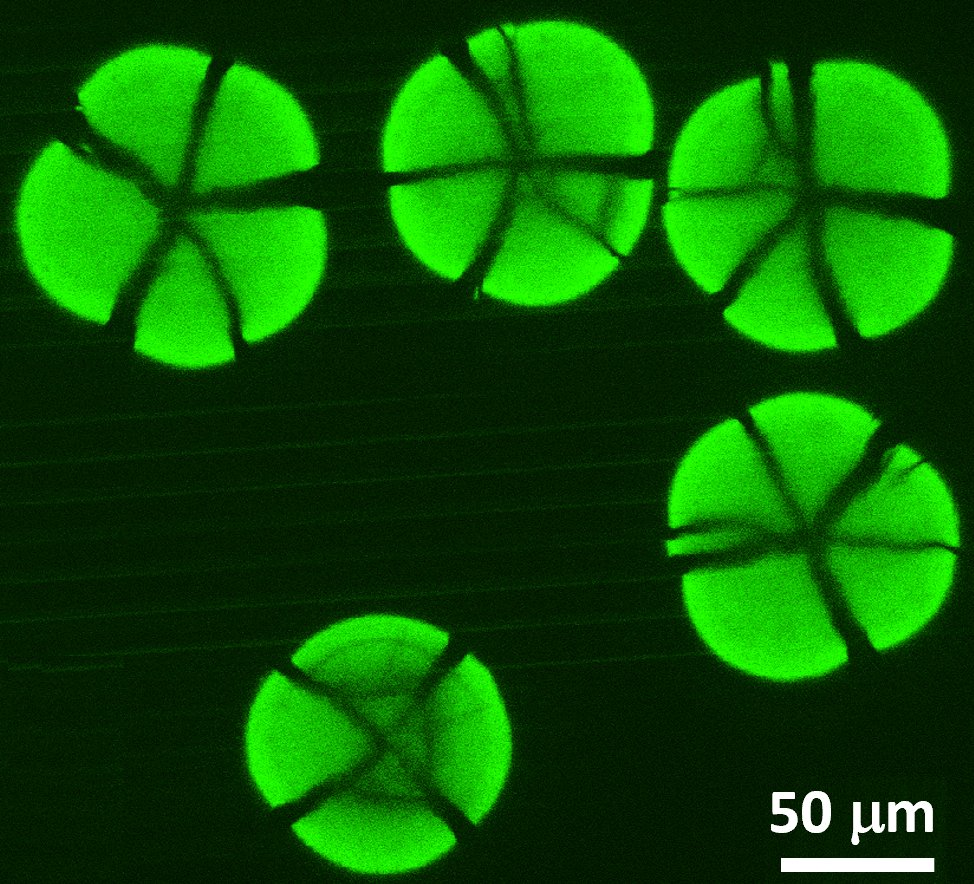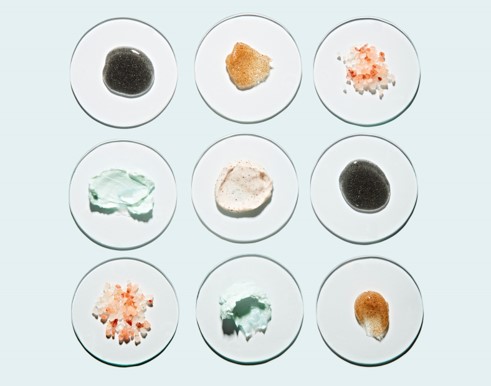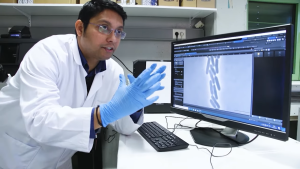In the fight against microplastic pollution, scientists are leveraging the power of microbes to create sustainable alternatives to harmful microplastic additives.
Having studied how bacteria interact with microplastics in the ocean, the research team of Prof. Anupam Sengupta created a patented technology that harnesses microorganisms to produce sustainable, carbon-negative biominerals. These natural particles could replace microplastics now used as fillers and soft abrasives in a wide range of daily consumer products and industrial applications.
This groundbreaking research from the Department of Physics and Material Sciences (DPHYMS) is offering a promising new path for industry-scaled solutions. Professor Anupam Sengupta, together with the Physics of Living Matter Group which he directs, is leveraging the power of microbes to create sustainable alternatives to harmful microplastic additives found in countless everyday products.
Rethinking everyday products: the hidden microplastic problem
Microplastics are a ubiquitous environmental concern, hidden within products we use daily, such as paints (up to 38% micro-additives), cosmetics (up to 10%), and even tyres (up to 15%). These tiny plastic particles are added as fillers or abrasives, providing desired properties like texture or finish. However, their environmental impact, is significant, particularly over the long term..
Professor Sengupta’s interdisciplinary lab Physics of Living Matter Group operates at the intersection of physics, biology, engineering, and machine learning, studying how microorganisms respond and adapt to changes in their environment. Their research often involves advanced imaging techniques, using specialised microscopes and high-speed cameras to see how microbes behave at cellular and population levels.”.
The µ-BITS project, an FNR Jump funded initiative, began with an investigation into how bacteria interact with microplastics in the ocean. This curiosity-driven research led to an unexpected and significant discovery: some microorganisms produce tiny mineral particles (biominerals) in response to the presence of microplastics. Crucially, further study revealed that other microorganisms could produce these very same biominerals even without microplastics present, through a process called Microbially Induced Calcite Precipitation (MICP).”

© Anupam Sengupta Lab
Introducing µ-BITS
This revelation paved the way for µ-BITS: What sets the µ-BITS technology apart is the ability of Professor Sengupta’s lab to precisely tune the properties of these biominerals, controlling their shape, size, and roughness. This tuning is vital because different industrial applications require specific particle characteristics – for example, altering the surface can determine if a paint finish is glossy or matte. By understanding and controlling the biophysical processes, the lab can tailor the biominerals for diverse uses in paints, cosmetics, washing powders, toothpaste, and more.
‟ Nature has already solved many of our toughest problems — we just need to observe, harness and adapt these solutions to industrial processes. With μ-BITS, we’re letting microbes lead the way to a cleaner, greener and sustainable future.”

Associate professor, FNR ATTRACT Fellow
From lab to market: scaling up a green solution
The project is now in the critical phase of product validation, collaborating with local industrial partners such as Goodyear and Peinture Robin, who have shown considerable interest in these biogenic particles. Initial trials, with paint applications, have yielded promising results. To meet future industrial demand, the lab is actively scaling up production from grams to kilograms using lab-scale bioreactors, with further scale-up underway. Prof. Sengupta’s team is aiming to create a spin-off in the near future to bring this innovative Made-In-Luxembourg technology to market and address a global environmental challenge.
More information
Prof. Anupam Sengupta leads the research group Physics of Living Matter within the Department of Physics and Materials Science.
-

Physics of Living Matter
The µ-BITS project originated during a Marie Skłodowska-Curie Actions (MSCA) individual grant, and made possible by the support of an FNR JUMP Grant, as well as the FNR-ATTRACT Investigator Grant which allowed Prof. Sengupta to establish his research labs in Luxembourg.
The project also benefited from the support of PaKTTO (Partnership, Knowledge & Technology Transfer Office at the University of Luxembourg).
